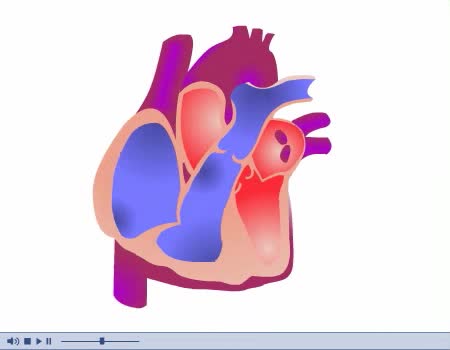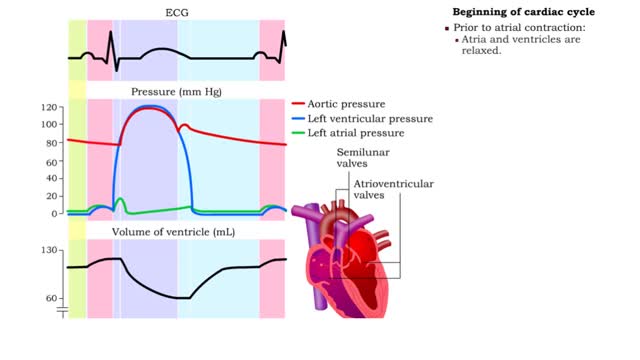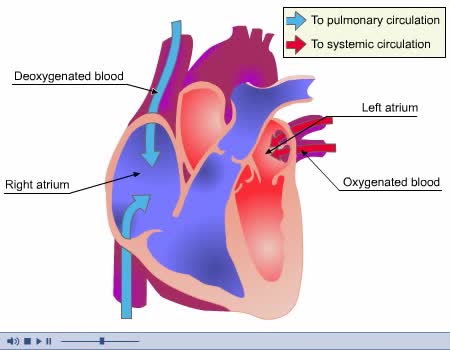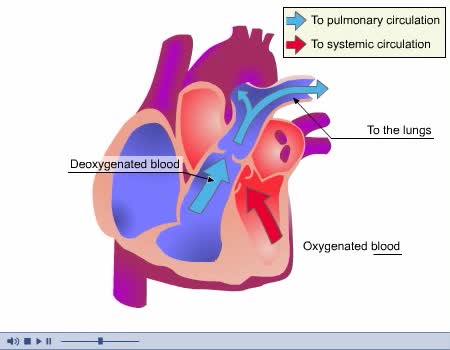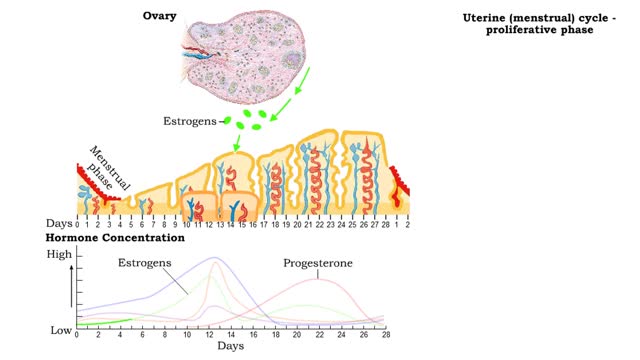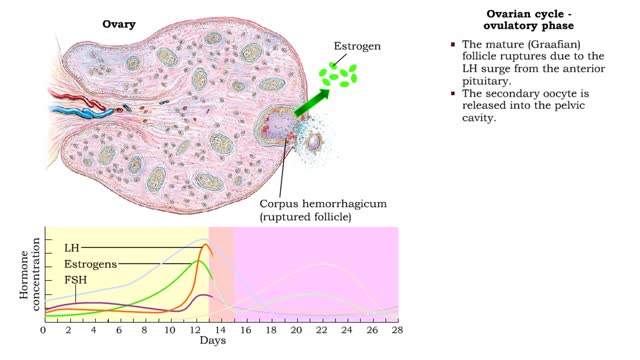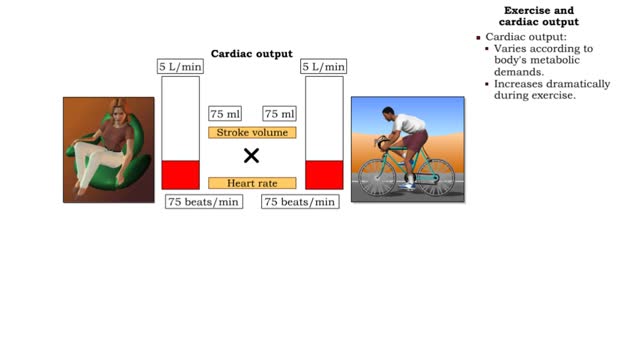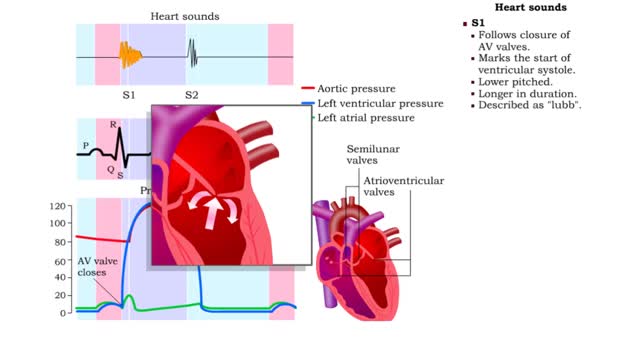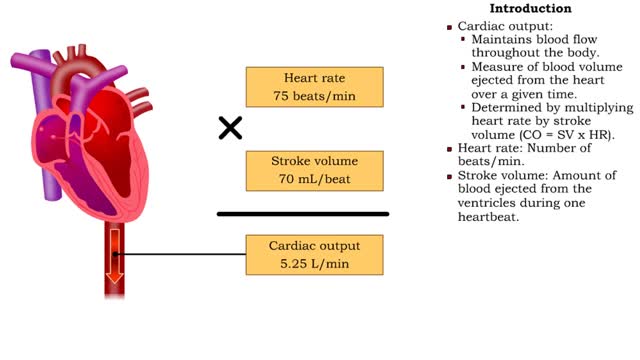Search Results
Results for: 'Five phases of cardiac cycle'
By: Administrator, Views: 14267
Diastole and systole are two phases of the cardiac cycle. They occur as the heart beats, pumping blood through a system of blood vessels that carry blood to every part of the body. Systole occurs when the heart contracts to pump blood out, and diastole occurs when the heart relaxes after contract...
Five phases of cardiac cycle & Atrial contraction
By: HWC, Views: 11188
1. Atrial contraction (atrial systole). 2. Isovolumetric (ventricular) contraction. 3. Ventricular ejection. 4. Isovolumetric (ventricular) relaxation. 5. Passive ventricular filling. Beginning of cardiac cycle • Prior to atrial contraction: • Atria and ventricles are relaxed....
Uterine (menstrual) cycle - phases
By: HWC, Views: 11038
• The uterus goes through a cyclical developmental pattern to be ready for implantation and support of an embryo. • The uterine, or menstrual, cycle is under the control of ovarian horrnones. • The uterine cycle also has three phases: • Menstrual phase • Proliferative phase �...
By: HWC, Views: 11492
• The ovarian cycle is a monthly sequence of events, consisting of three phases: • Preovulatory • Ovulatory • Post ovulatory Preovulatory phase • prior to ovulation: Primary follicles develop into secondary follicles. • Follicular cells surrounding the primary oocyte In...
Exercise and cardiac output & Definition of stroke volume
By: HWC, Views: 11080
▪ Cardiac output: • Maintains blood flow throughout the body. • Measure of blood volume ejected from the heart over a given time. • Determined by multiplying heart rate by stroke volume (CO = SV x HR). • Heart rate: Number of beats/min. • Stroke volume: Amount of blood eject...
By: HWC, Views: 11125
During a normal, healthy heartbeat, or what we call a cardiac cycle, the top two chambers of the heart, called the atria, contract simultaneously. Then, as they relax, the bottom two chambers, called the ventricles, contract. This explains what happens during a cardiac cycle, but what it doesn't ...
By: HWC, Views: 10873
• Cardiac output: • Maintains blood flow throughout the body. • Measure of blood volume ejected from the heart over a given time. • Determined by multiplying heart rate by stroke volume (CO = SV x HR). • Heart rate: Number of beats/min. • Stroke volume: Amount of blood eject...
Advertisement



